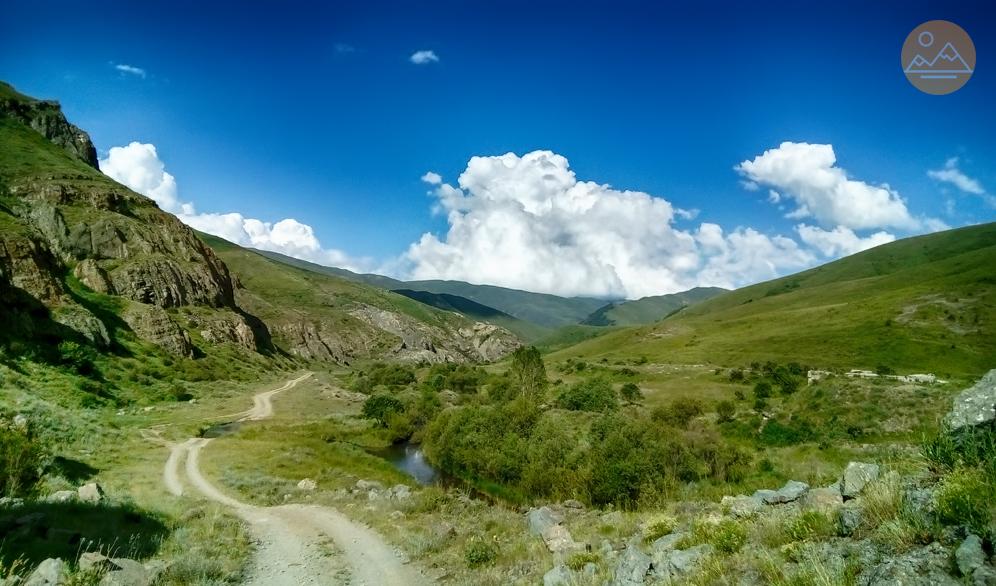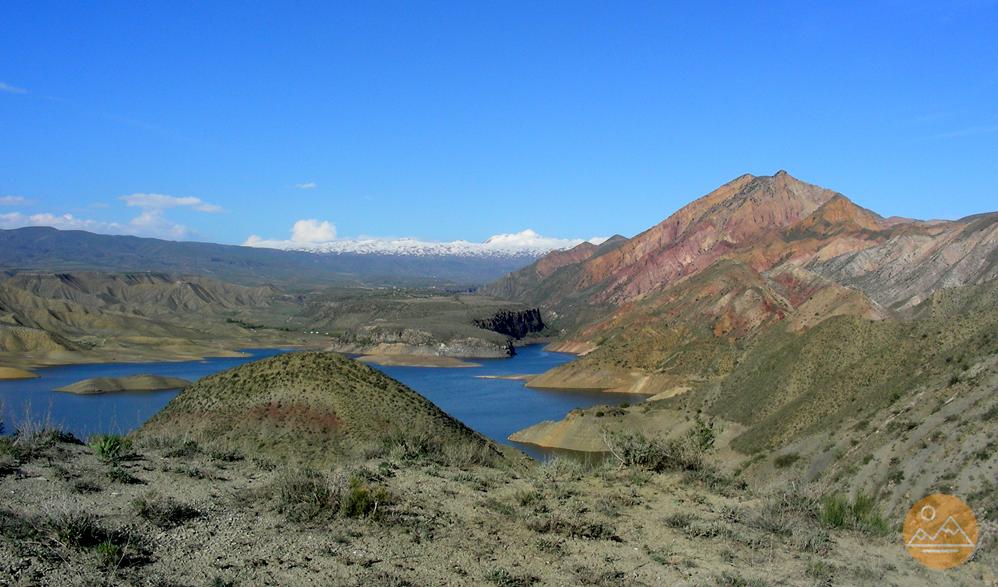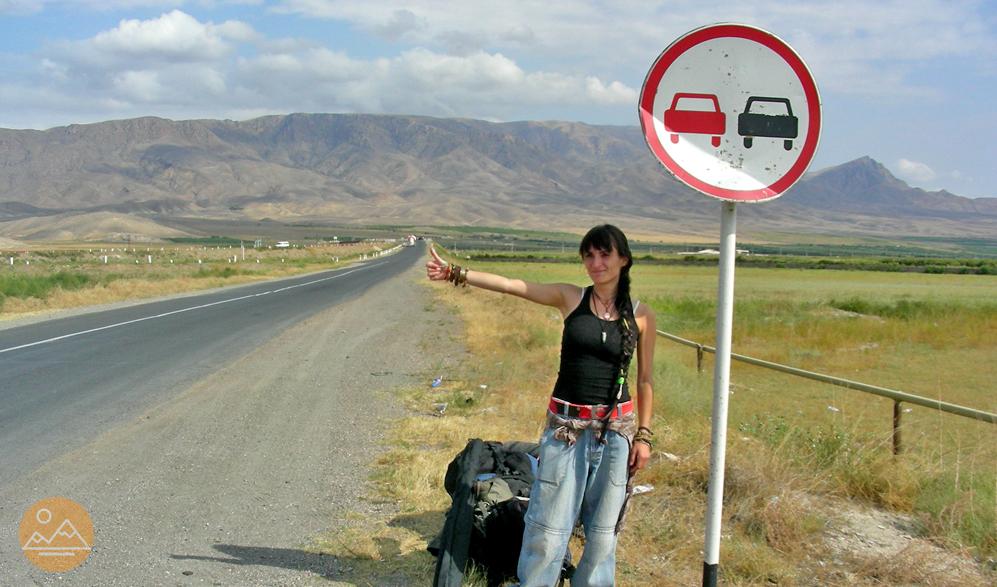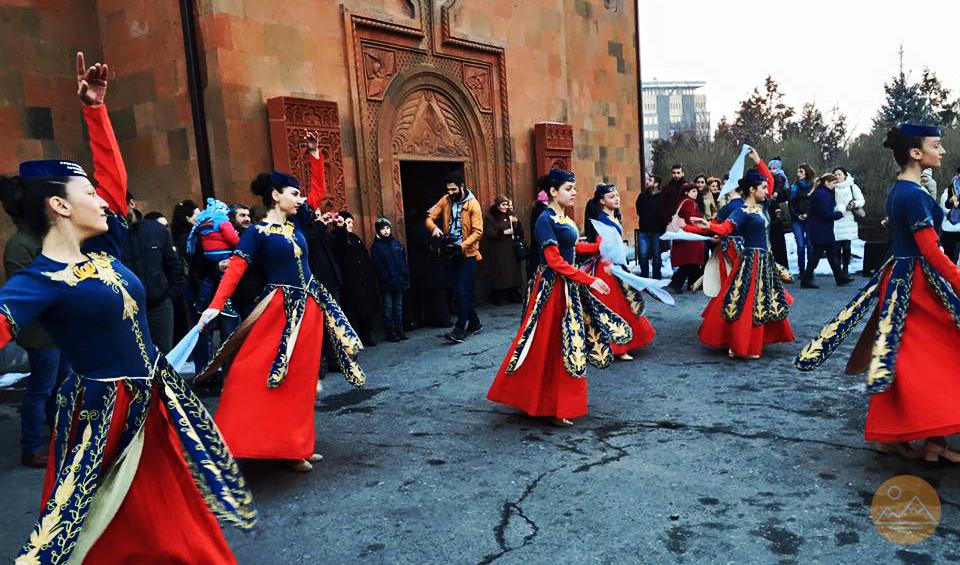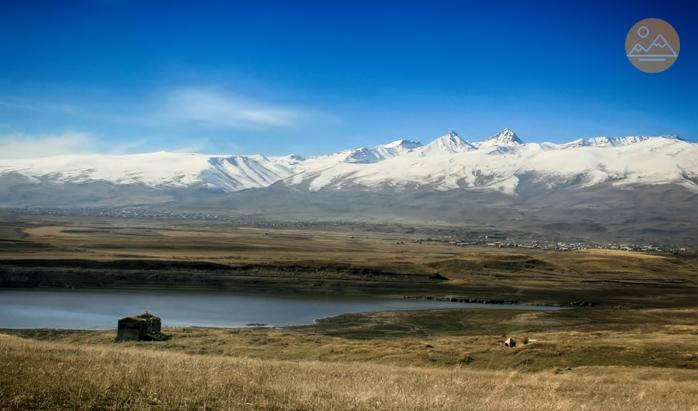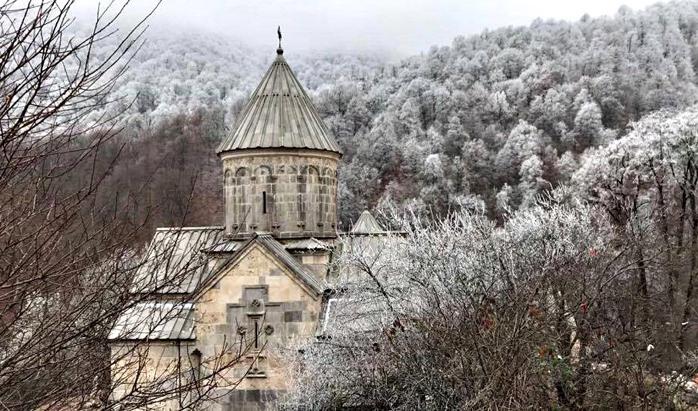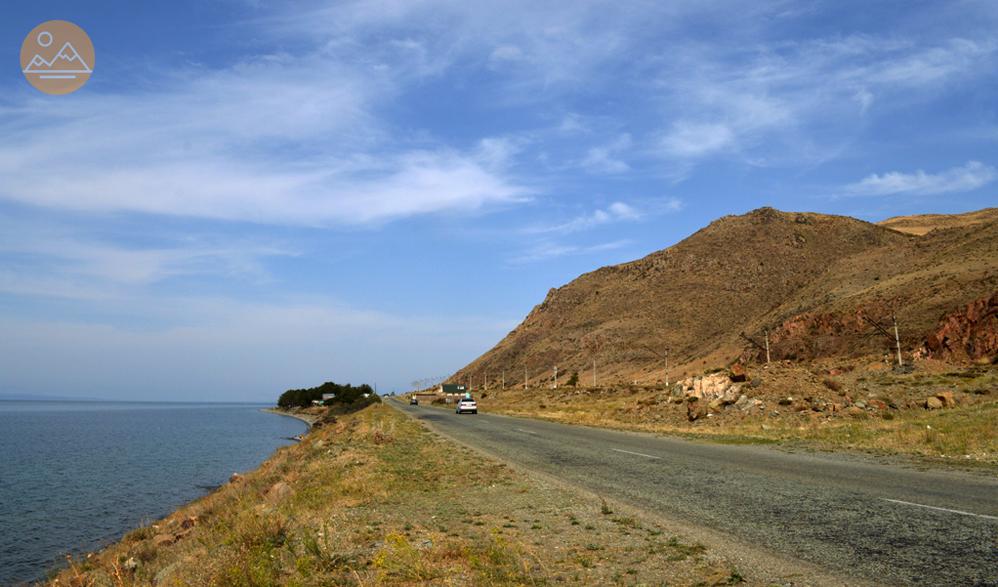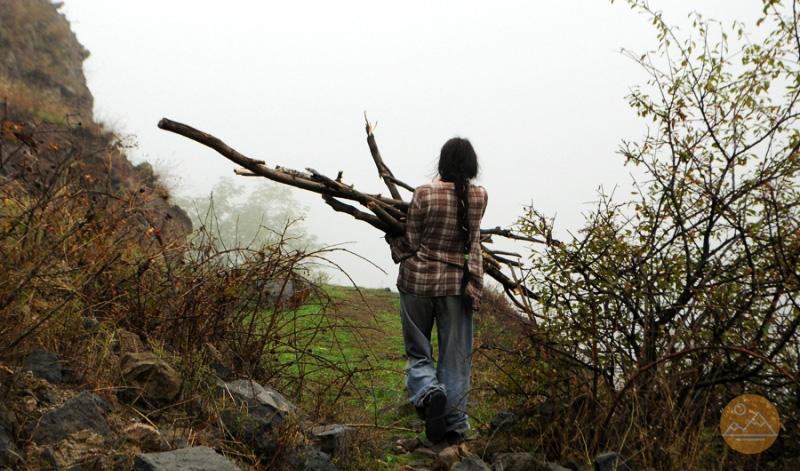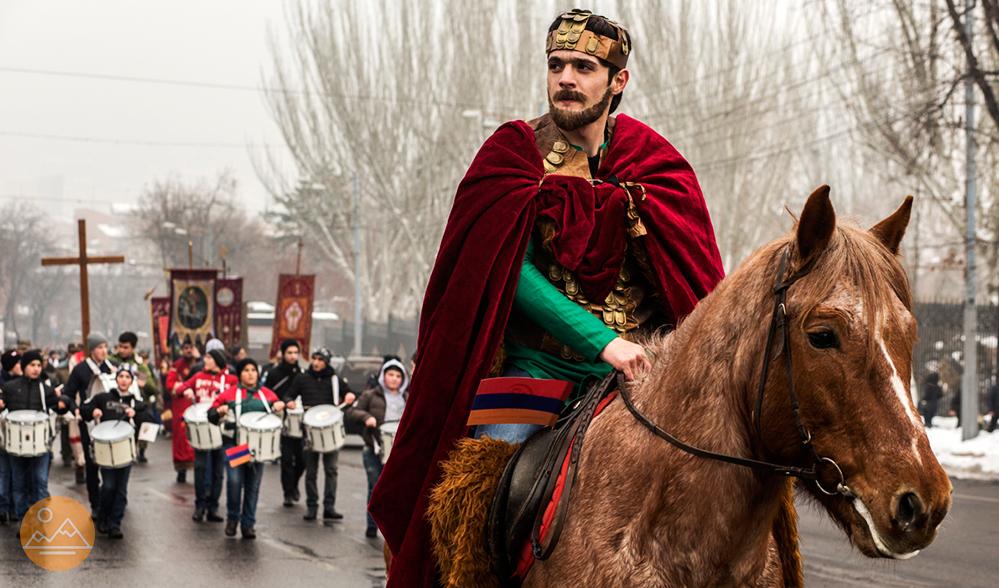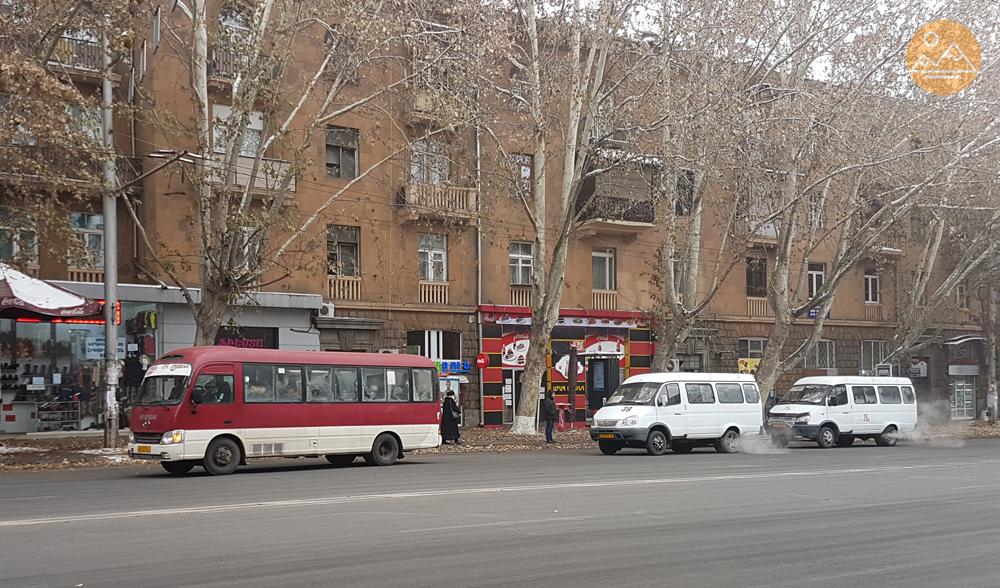-
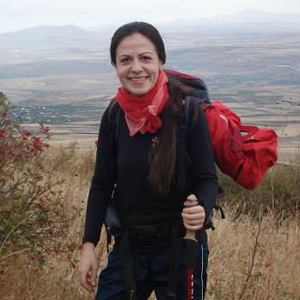 Lilit Grigoryan
Lilit Grigoryan
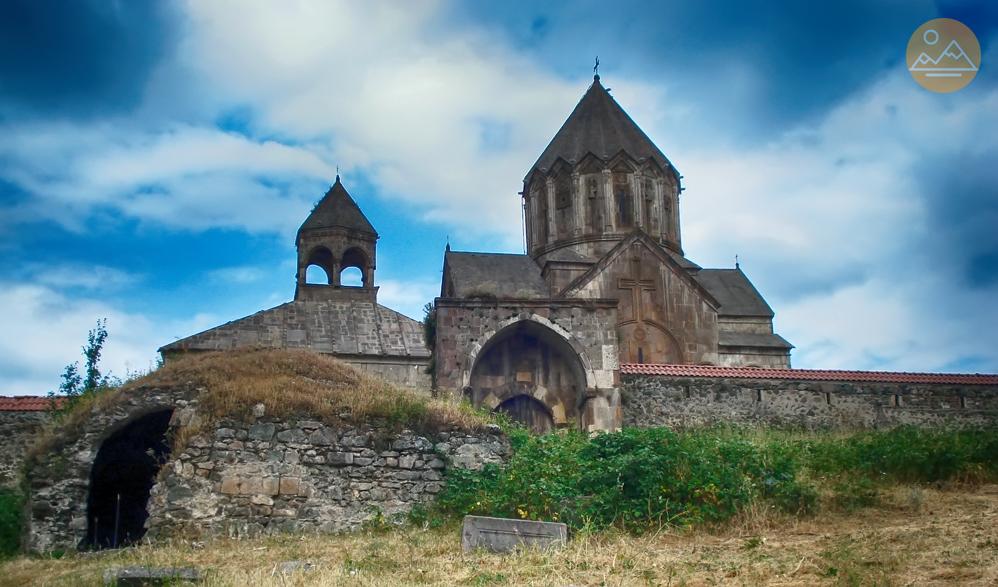
Gandzasar monastery, Artsakh / Photo: Lilit Grigoryan
The Miracles of Gandzasar Monastery
Views - 4159
It was one of those weekends when you abandon everything and escape from the bustling of the city to spend a few days in a quiet rural area to energize yourself before a new working week. People around Armenia were getting ready for the celebration of the feast of Vardavar – a local holiday celebrated by pouring water on each other. “Why not to travel to Artsakh?” I thought to myself, trying to decide where to go. Although I've visited the Republic of Artsakh a few times in the past, somehow I never had the chance to pay homage to the medieval monastery of Gandzasar. It was a good excuse to visit this exceptional architectural masterpiece, also famous for its miraculous powers.
The minibus trip from Yerevan to Stepanakert took some long five hours. My intention was to return back on Sunday evening just to be able to go to work on Monday, but the road had different plans for me. At the bus station, I learned that the last minibus on Sunday leaves for Yerevan at 10:00 AM, and that meant I wouldn't have time to visit the monastery. While I was trying to come up with a backup plan, suddenly my boss called – to let me know that during the government’s special session, the coming Monday was decided to be a holiday, too, which meant I had another free day! Apparently, the Gandzasar monastery performed its first miracle. I was thrilled and excited.
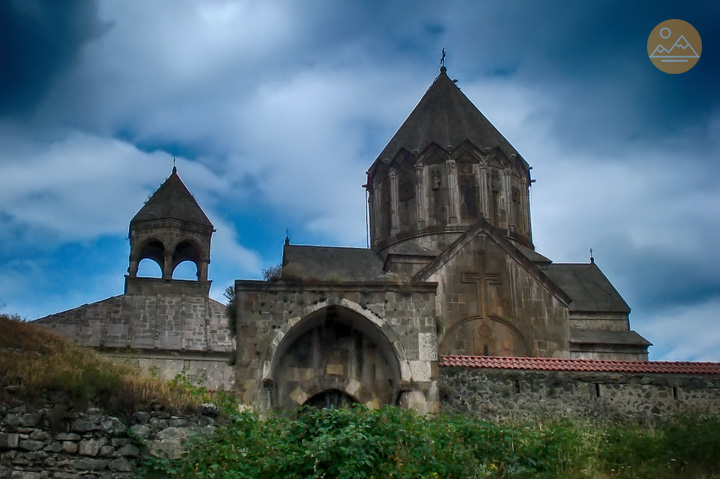
The monastery of Gandzasar, Artsakh / Photo: Lilit Grigoryan
The monastery is located in the neighborhood of the village of Vank, so I had to take another minibus from Stepanakert. Many people visit their relatives and families in the villages on weekends, and you really have to be lucky to get your seat in the minibus. Having a ticket doesn't guarantee you a seat, so I rushed to the minibus half an hour before departure. Eventually, me and two other women squeezed on two seats. The woman who sat next to me tried to engage me in a conversation asking questions about my trip, wondering if I have a place to stay. “I'll spend 2 nights at the hotel near the Gandzasar monastery,” I said to her. “Oh dear! But that's expensive! Why don't you come and stay at my place? I'm Nano, by the way,” she exclaimed. As she insisted, I accepted her generous offer. After all, it's the kind of experience I look for – spend some days with locals in a village and share their everyday life! Another miracle from Gandzasar!
When we arrived to her home, Nano hurried to pick some beans from her garden to cook dinner for us, which was accompanied by fresh green salad and home-baked bread. Everything fresh, healthy and ecologically clean: no pesticides, no chemicals. Pure delight!
I was very tired after the long trip so I went to bed early – to rest and get ready for the next day's adventures! I was going to climb up to the top of the hill to finally reach the monastery of Gandzasar.
Or so I thought! Just as I finished with my morning routine, which included a warm bath with a mug and a bucket of water, and was about to head up to the monastery, my host Nano showed up. “You aren't going to walk to the top, are you?” she asked, and then added: “There's a bus at 10 AM. It takes people to the monastery from the village. No need to walk.” There was no way I could argue, and so I went to the bus stop and got on that bus. When my fellow passengers learned it's my first visit to their village, they insisted I should see the famous sculpture of a lion. And so off we went to the see the lion – me and the rest of the people in that bus. Turned out, the bus delivers food supplies to the hotels which operate in the village of Vank. People helped each other, taking care of everyone's belongings, which was very touching. They took me on an excursion around the areas surrounding the lion sculpture, and only after that we finally drove to the monastery.
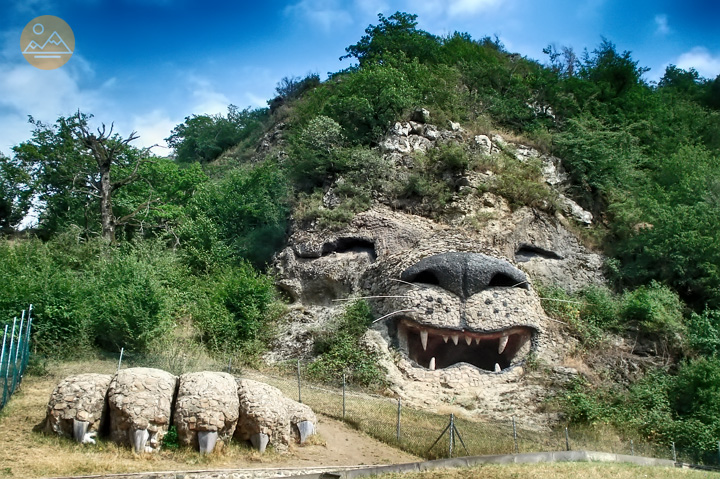
The Lion sculpture in Gandzasar, Artsakh / Photo: Lilit Grigoryan
The monastery of Gandzasar dates back to XIII century. The main church of the complex – the Cathedral of St. John the Baptist - was consecrated on July 22, 1240, which coincided with the feast of Vardavar. And today, the day of Vardavar is also the day of pilgrimage to the Gandzasar monastery – one of the masterpieces of Armenian architecture.
The monastery derives its name from Armenian words “gandz” (treasure) and “sar” (hill, mountain), and can be translated as “treasure mountain”. According to Christian tradition, Gandzasar bears relics of many saints, including St. John the Baptist, St. Zachariah (father of St. John the Baptist), St. Gregory the Illuminator (who baptized Armenia into Christianity) and his grandson St. Grigoris, St. Pantaleon. Another version is that it got the name because of the ancient copper and silver mines found in its vicinity.
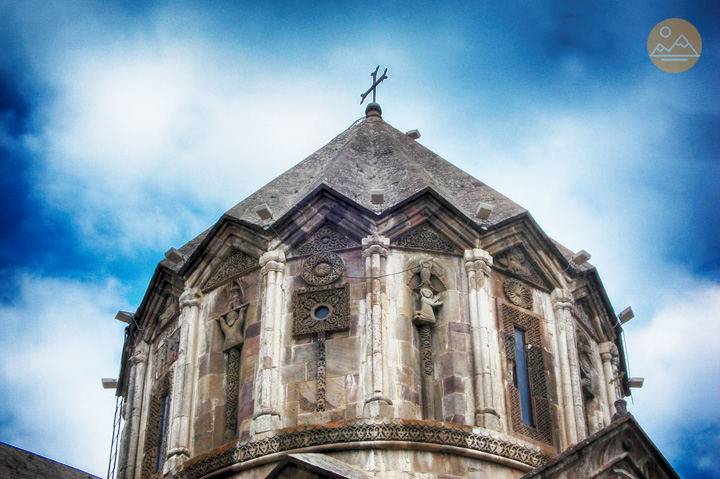
The Dome of the Gandzasar monastery, Artsakh / Photo: Lilit Grigoryan
When I entered the main church of the monastery, a stone on the right side caught my attention – it had five small circles in the center, four bigger ones in each of the corners crossed with lines and one big line in the shape of cross that forms a square in the center. Some people say that the larger cross in the center is devoted to Jesus Christ, while the small ones are representing Evangelists. Others think that those five crosses are the number of wounds that Jesus Christ received when he was crucified. Another hypothesis suggests that the five small circles in the center are the number of saints whose relics are hidden under the altar.
A Sunday liturgy was taking place at the monastery, and so I joined others to witness the sacred ritual. After the liturgy, the abbot of the monastery, Father Sahak, invited me to have lunch with them, but not willing to trouble them, I only had a cup of tea - to warm up a little. It was windy on the top of the hill and I got cold. Later on, one of the deacons took me to show another miracle that happened in the monastery during the Artsakh war in 1990s.
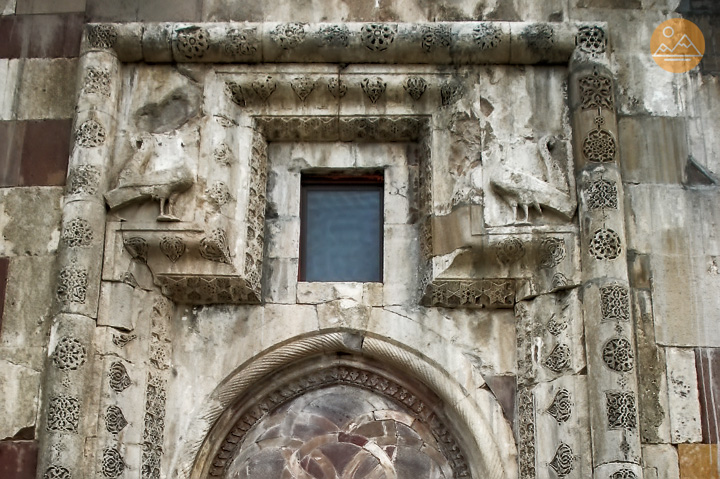
Carvings above the entrance to Gandzasar monastery, Artsakh / Photo: Lilit Grigoryan
The monastery was hit by a mortar bomb, but it didn't explode, and today visitors can see the remains of the shell in the northern part of the wall. And as locals said, soldiers also witnessed how the mortar bombs fired at the dome of the church were thrown away by angels who were guarding the sacred site. This was the reason for many of them to abandon the lay life and become priests or deacons.
Spending a few hours at the monastery, I explored the surroundings and then walked the road back to Nano’s house. It took me about an hour, but I had the chance of admiring the picturesque scenes surrounding the monastery of Gandzasar and the Vank village, tasting the wildly grown dewberry on the go.
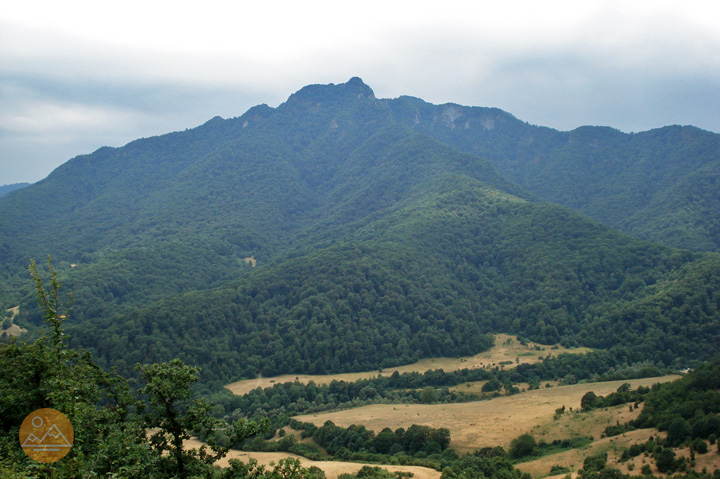
Landscapes around Gandzasar monastery, Artsakh / Photo: Lilit Grigoryan
I returned back to Yerevan the next day. Looking out of the minibus window, I silently observed the changing landscapes and colors, but my soul and my mind were still back in the monastery on top of the hill as I was thinking about the miracles of Gandzasar.
How to get to Gandzasar monastery:
In Yerevan, take a minibus from the Kilikia bus station to Stepanakert, the capital of Artsakh (costs 5000 AMD). The ride will take about 5-6 hours. The minibuses are available from 7:00 – 8:00 AM. You can also get on a shared taxi, which will cost 8000 AMD, but it'll only leave when all 4 seats are taken.
In Stepanakert, take the minibus to the village of Vank. They're scheduled twice a day – at 9:00 AM and 4:00 PM. The ticket should be purchased at the station, costs 600 AMD. Taxi can be an option, too, but will cost around $20. Minibuses from Vank to Stepanakert depart at 7:30 AM and 3:30 PM. The bus fare from Stepanakert to Yerevan costs 4500 AMD. 1 USD = 477 AMD. Schedule, prices and exchange rate are valid as of November 2016.
